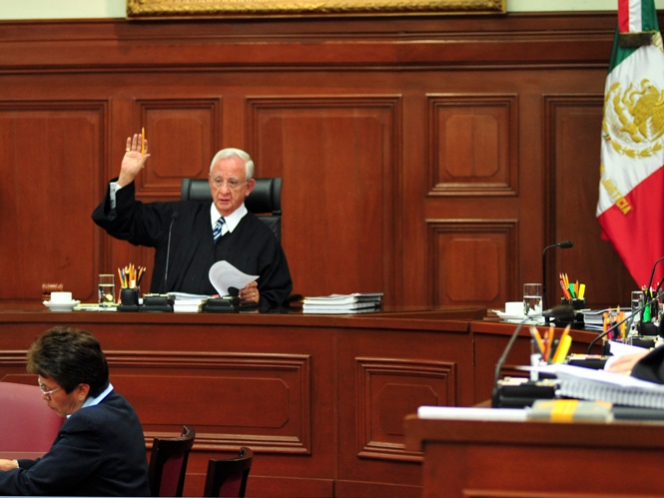
03/01/13 – Federal Judge Carlos Alfredo Soto Morales in San Andrés Cholula, Puebla, ruled in favor of an amparo filed by an 82-year-old woman on February 14. The judge declared that the order for the woman’s arrest, which had been granted by a civil court, was unconstitutional, given the age of the elderly woman and the violation of the subject’s dignity had she been detained. The elderly woman’s 12-hour order of arrest came as a result of a case brought forward by her daughter involving a contentious probate dispute. As reported by El Mexicano, the arrest had been validated by a civil judge in favor of a woman identified as the daughter of the elderly subject, who requested the order.
According to the Dictionary of Mexican Legal Terminology by Javier F. Becerra, in Mexico, amparo suits are commonly used as a constitutional remedy to obtain relief against the violation of constitutional civil rights guaranteed by the government or the court of law. It is an injunction unique to Latin America and primarily Mexico that protects individual’s rights from inappropriate acts or failure to act by authorities. In the United States, these sort of cases are similar to appeals.
Judge Soto Morales ruled that an order of arrest made against any adult of 80 years of age or older violates the Mexican Constitution, the laws put in place for the rights of elders, and the concept of human dignity espoused within the Mexican constitution and the United Nations. Soto Morales added that an arrest made against such elderly persons significantly violates the dignity of these individuals, burdening their livelihoods with the emotional anguish brought forth in being detained by police officials, offering examples of being held in an unfamiliar and potentially dangerous environment, and under the supervision of officials insufficiently trained to deal with the needs of the elderly.
Soto Morales’ ruling exemplified the notion that it is in the state’s interest to protect the emotional and physical well-being of the elderly, and to recognize their vulnerability especially in the advanced stages of life. The court ruled in favor of the elderly woman, granting her protection from appeal on the basis of the greater vulnerability that adults 80 years of age and older encounter, as well as a recognition of the apparent history of social injustice within Mexico perpetrated against the elderly, specifically citing abandonment and abuse by family members and the larger society in general.
Furthermore, the judgment concluded that public offenses, such as infractions, must take into consideration the age of the elderly and assess punishments accordingly. The case is notable as it sets a precedent for similar cases that may arise in the future, and also illuminates the issue of elderly abuse, calling for the enforcement of the rule of law for the protection of the elderly, particularly of those 80 years and older. To read the court’s official communication, click here.
Sources:




